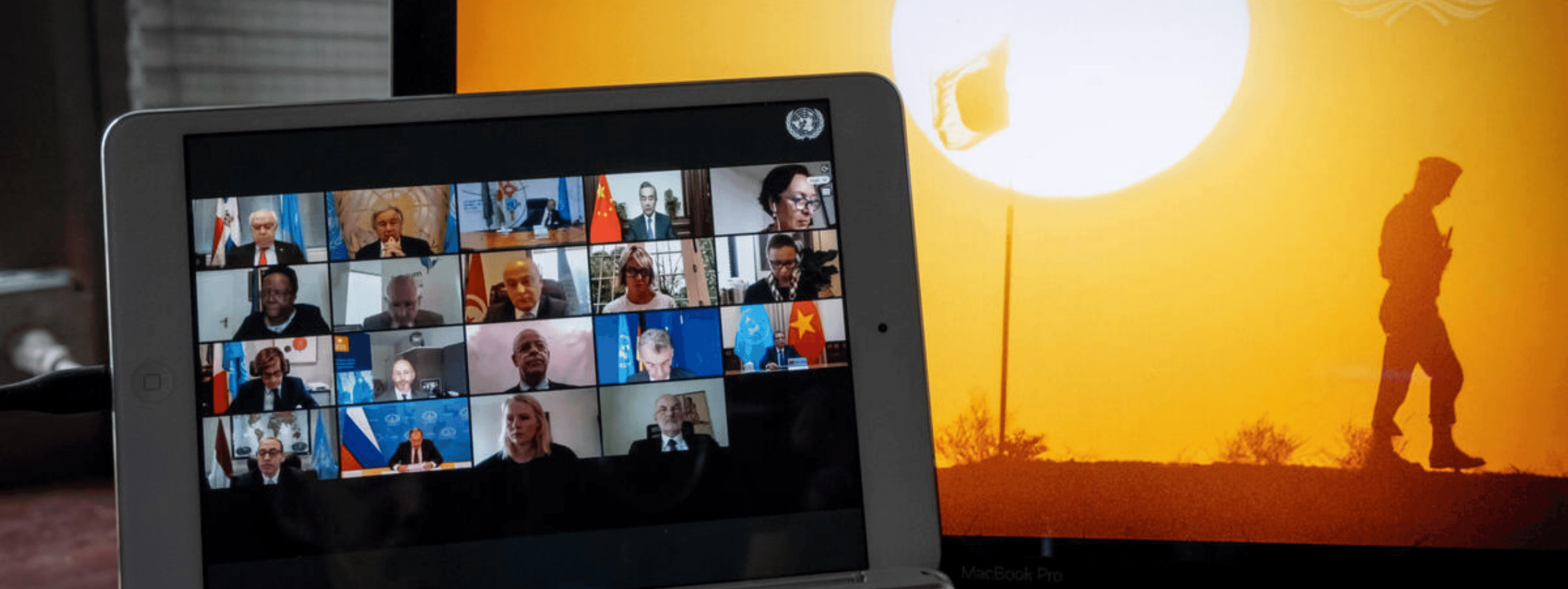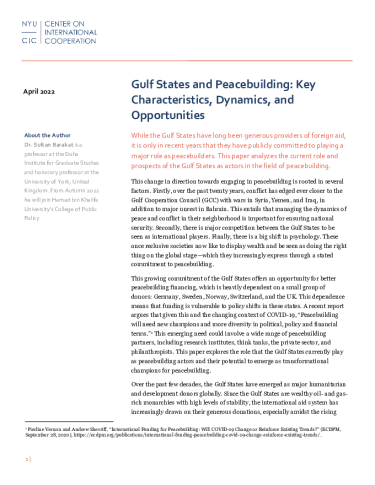While the Gulf States have long been generous providers of foreign aid, it is only in recent years that they have publicly committed to playing a major role as peacebuilders. This paper analyzes the current role and prospects of the Gulf States as actors in the field of peacebuilding.

This change in direction towards engaging in peacebuilding is rooted in several factors. Firstly, over the past twenty years, conflict has edged ever closer to the Gulf Cooperation Council (GCC) with wars in Syria, Yemen, and Iraq, in addition to major unrest in Bahrain. This entails that managing the dynamics of peace and conflict in their neighborhood is important for ensuring national security. Secondly, there is major competition between the Gulf States to be seen as international players. Finally, there is a big shift in psychology. These once reclusive societies now like to display wealth and be seen as doing the right thing on the global stage—which they increasingly express through a stated commitment to peacebuilding.
This growing commitment of the Gulf States offers an opportunity for better peacebuilding financing, which is heavily dependent on a small group of donors: Germany, Sweden, Norway, Switzerland, and the UK. This dependence means that funding is vulnerable to policy shifts in these states. A recent report argues that given this and the changing context of COVID-19, “Peacebuilding will need new champions and more diversity in political, policy and financial terms.”
This emerging need could involve a wide range of peacebuilding partners, including research institutes, think tanks, the private sector, and philanthropists. In this paper, Professor Sultan Barakat (founding director of the Center for Conflict and Humanitarian Studies and an honorary professor at the University of York, United Kingdom) explores the role that the Gulf States currently play as peacebuilding actors and their potential to emerge as transformational champions for peacebuilding.
Read the full brief: Gulf States and Peacebuilding: Key Characteristics, Dynamics, and Opportunities


